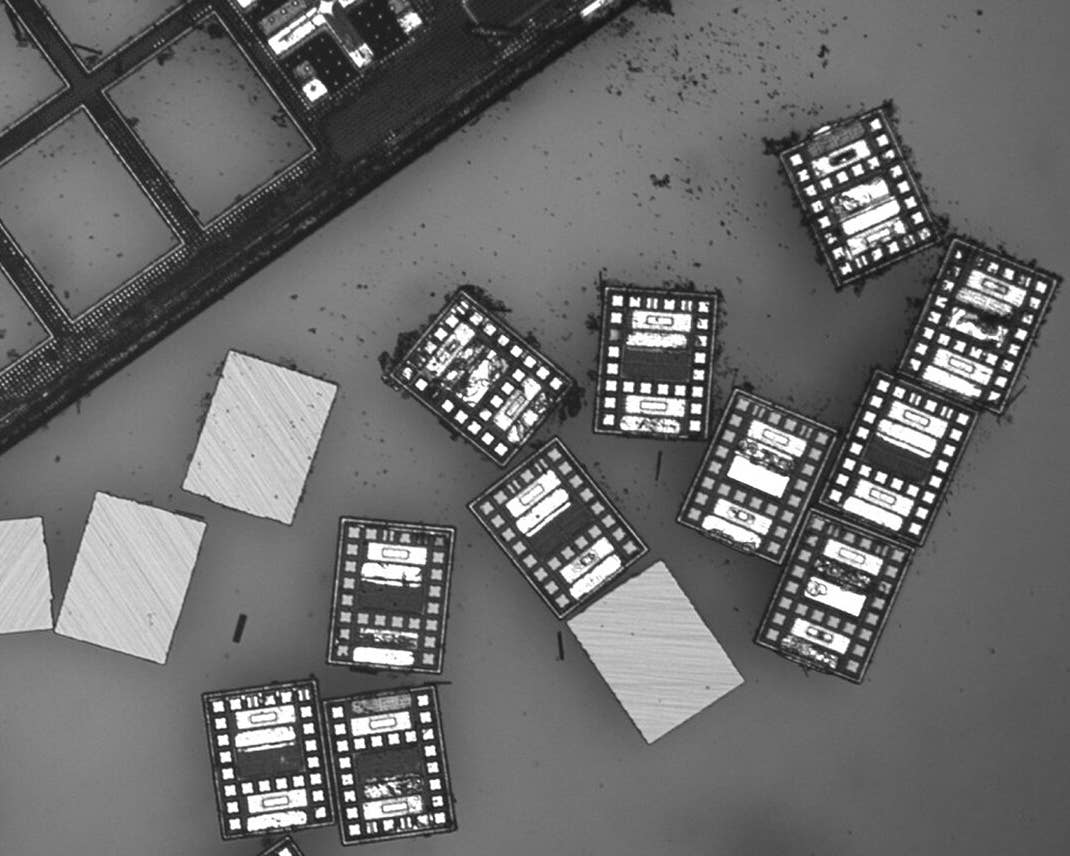Libyan Rebel Engineers Improvise War Robots In Fight Against Gaddafi (video)

Share
How do I know we live in the future? Because there's a ragtag group of rebels facing an evil regime and their greatest hope may be the fighting fury of robots they assemble out of the scrap heap. Courageous Libyan engineers, students, and inventors are leveraging their creative skills to assist the ongoing revolt against Muammar Gaddafi. Among their many creations are tablet-controlled gun turrets and even a machine gun strapped onto a remote controlled Power Wheels toy truck. When I first saw the following video from Al Jazeera news, I couldn't believe it - you have to check it out below. While their inventions don't match the militaristic might of US bots, these engineers are showing that robotic war is now a do-it-yourself project. I am both awed and terrified by what this development portends.
Al Jazeera highlights several different DIY military projects produced by the Libyan rebel forces, but the more robotic examples begin around 0:55. Make sure to watch to the end to see simpler engineering feats that have helped win battles without harming a single human life.
Despite my powerful reaction to this news, the reality is that these DIY robots have little chance of actually determining the fate of this conflict. Yes, the larger engineering endeavors and make shift supply efforts of the opposition forces is likely to be a factor, but I sincerely doubt that armed robots will alter the course of this war on their own.
They don't need to in order to be important in the long term.
The past decade of conflict in the Middle East has demonstrated the power of small scale engineering in asymmetric warfare. The roadside bomb/improvised explosive device (IED) is one of the definitive weapons in the wars of Iraq and Afghanistan. These bombs, while tragic in their application, are to some degree only possible because of engineering skills on the parts of the insurgents.
Now look at Libya, where Western sympathies are reversed in terms of the asymmetry of the war, but where the same lesson is being taught again. These students and truck drivers are showing us another side of DIY weaponry, a robotic side that reinforces the idea that engineering can turn a less powerful enemy into a formidable foe. The more creative the engineering, the more potentially devastating the blow it can land.
Be Part of the Future
Sign up to receive top stories about groundbreaking technologies and visionary thinkers from SingularityHub.


Yes, large military industrial complexes like those of the West will continue to outstrip all other attempts at engineering. As we've already seen, the US has utilized robots in all fields of the war in the Middle East, with thousands of ground robots in Afghanistan alone. Yet many of these bots are specifically aimed at countering the considerably simpler engineering used to create IEDs. As with traditional arms, advanced weapons are susceptible to one of the truths of asymmetric warfare: it takes much more power to defeat an insurgency/rebellion, than it does to participate in one. As DIY war engineering improves, the technology it takes to counter/defeat it will need to be exponentially improved as well.
What the Libyan opposition forces can do with children's toy cars and spare parts is extraordinary, and it leads me to wonder what will happen when they (or any similar force) gains access to the increasingly cheap and versatile robots coming up through the DIY community. Flying drones are already being used by insurgent forces in Afghanistan, and we've seen how impressive (and potentially game-changing) those machines can be in other applications. Bottom line, there's a lot of potential power in DIY robotics out there. Just look at the kind of destructive fun we have in amateur competitions. Imagine that sort of aggressive creativity applied to real world conflicts. For many years I suspect that no such project could match the power of a national program, but robotics is slowly becoming more democratic. It may take a while for that to trickle down to the individual level (whether we're talking robots that clean your home, or help fight your wars) but certainly corporate level robotic war isn't as far-fetched as it may first seem. The 21st Century is definitely going to be the era of automated warfare, the only question that remains is who's going to be fighting it. I'm starting to think that more people than I ever dreamed possibile will have the ability join in. That's both amazing, and terribly, terribly sad.
*Thanks to Joe Nickence for pointing us to this story. See everyone, your comments make a difference!
[screen capture and video credit: Al Jazeera English]
Source: al jazeera
Related Articles

These Robots Are the Size of Single Cells and Cost Just a Penny Apiece

In Wild Experiment, Surgeon Uses Robot to Remove Blood Clot in Brain 4,000 Miles Away

A Squishy New Robotic ‘Eye’ Automatically Focuses Like Our Own
What we’re reading
